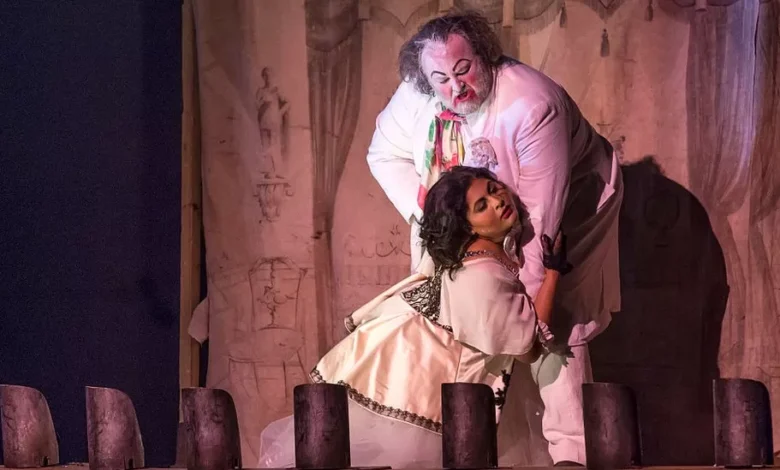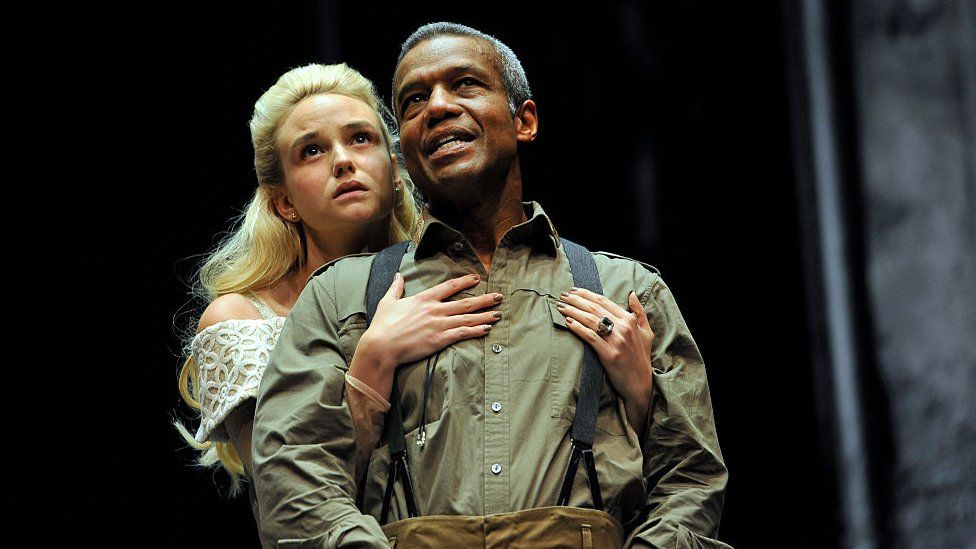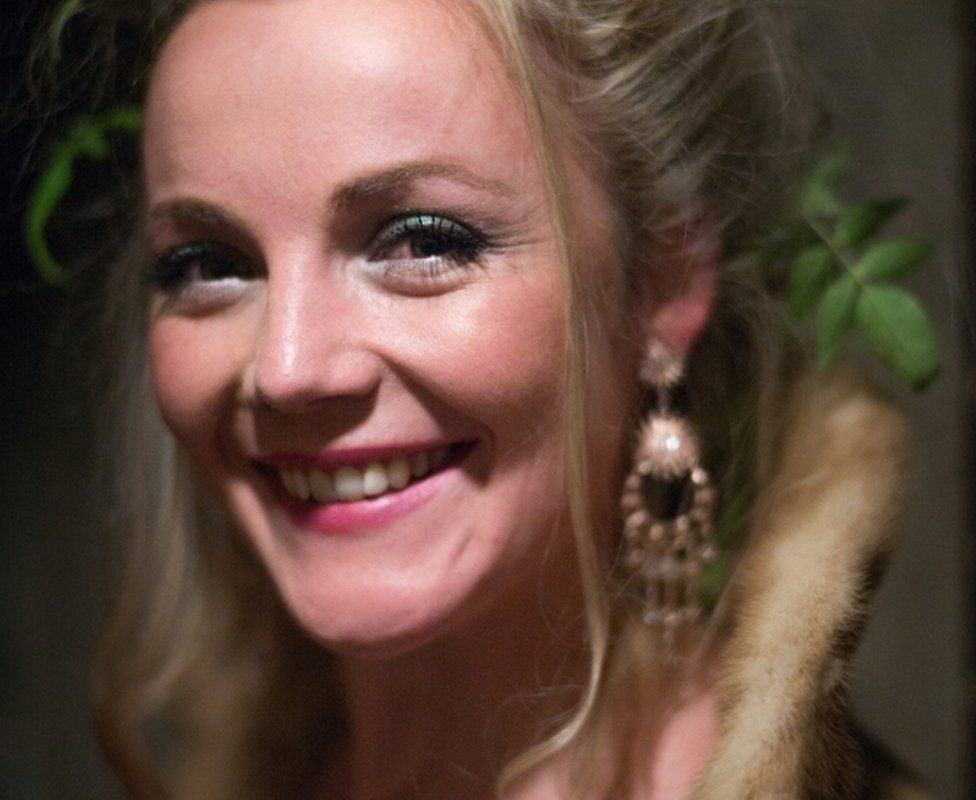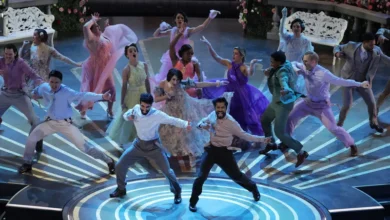Delilah: Song ban opens debate on depictions of violence against women

Reaction to a ban on choirs from performing the Tom Jones classic, Delilah, at Welsh international rugby matches has been mixed.
While some approve, others say they can’t understand how the ballad’s lyrics – a fictional account of a jealous man murdering his wife – could be seen as trivialising violence against women.
Depictions of gendered violence have featured in artforms like plays, operas, and songs for centuries, and continue to be performed live to this day.
So does the row over Delilah mean other types of performances should face similar scrutiny?
“There is a huge amount of violence against women in Shakespeare,” said Diane Purkiss, a professor of English Literature at Keble College, Oxford. “The ‘tragedy’ aspect in many of his plays is that the women in them suffer.
“In Othello, for example, the main character’s wife Desdemona is murdered by a jealous husband like the wife is in Delilah.
“But unlike the song, Shakespeare’s play shows that Othello ultimately really regrets it, and it is made really clear that his wife was not guilty of being unfaithful. Othello is in the wrong, and his actions are never justified.

“Yes, the audience is subjected to a depiction of a woman being murdered by her partner, but what they are also witnessing a parable about acting impulsively and jumping to conclusions.
“Shakespeare wanted audiences to feel uncomfortable to encourage them to confront their own prejudices. He was a great asker of questions. I’m not sure that was the intention with Delilah.”
Jealous men who kill their wives are central to the plots of several of the most famous operas still drawing audiences across the world, including productions like Pagliacci, Wozzeck, and Carmen.
Dumbing down society
Opera director Daisy Evans said it was difficult to know what the attitudes of composers of the past were, or whether the gendered violence in their work aimed to educate audiences.
But she said modern-day directors could make sure that women and their experiences were properly represented.
“If theatre is supposed to be an arena where we see extreme circumstances play out, then I think it’s still relevant to put those stories on.
“Older productions sometimes may have not portrayed the subject well in the past, and directors are absolutely key to make sure women are seen in the right way.
“It’s in our power to inform audiences’ reaction to characters.
“For instance, if I was to stage a production of Carmen I would work hard to make sure she was the most powerful person on stage and her lover, Don Jose, the weak one.”

Ms Evans, who is currently directing The Magic Flute for the Welsh National Opera, added: “These stories can be uncomfortable. But you’d be dumbing down society by stopping them from being told.
“It’s about how the audience is experiencing it. If you’re listening to a pop song you’re sometimes just humming the tune and not thinking where those words are coming from.
“A song like Delilah is minutes long. The violence depicted in it is totally different to that in an opera, because you have hours to understand the context, the characters, before that violence plays out.”
Domestic abuse campaigner David Challen said portrayals of gendered violence on stage and on screen help reflect society and flesh out issues facing women.
‘We shouldn’t normalise lyrics like this’
“I don’t believe gendered violence should stop being depicted in art. The problem with Delilah is it’s a celebrated song that uses domestic abuse as a topic, but people don’t take any real meaning from it,” he said.
“There’s joy about a woman being brutally murdered [in the song], and society really shouldn’t be finding any joy from that.
“But when it comes to longer-form content, it’s really important to have awareness of the gendered nature of domestic abuse so people are aware it affects people around them.”
Fellow domestic abuse campaigner Rachel Williams, who survived a shotgun attack by her estranged husband, said she believed education surrounding violence against women was better than banning the content that featured it.
She said: “I loved the song [Delilah], but stopped singing it when I realised it was about glorifying the murder of a woman.
“We shouldn’t normalise lyrics like this and should continue to call them out.
“I don’t think we should get rid of them [depictions of violence against women in art] but we can use them in today’s messaging of how acceptable it once was and how time has moved on.”










